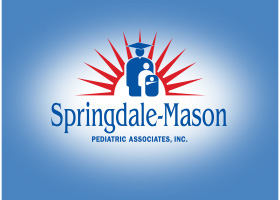Safety
Child Sexual Abuse Prevention: What Parents Need to Know
View spanish version, share, or print this article.
The idea that any adult would sexually abuse a child is terrifying, especially for parents and caregivers. But like any risk our children might face, we need to be able to empower them with information that will help them recognize unsafe situations. We also need to know how to respond to these situations if they occur.
Sexual abuse is a particularly difficult issue for caregivers, since there usually are no outward, easily noticed signs of the abuse. And when they are there, the signs of abuse often are vague. Learning about and being alert to potential signs of sexual abuse can help us feel more grounded and better equipped to keep our children safe.
There most important step to keeping children safe is prevention. There are key things we can teach our children that may reduce the chances they will fall prey to a sexual predator.
What we teach our kids can reduce their risks for sexual abuse
Parents and child health experts are working together to find new ways of preventing childhood sexual abuse. One promising approach is teaching children about body autonomy, the idea that all people have the right to govern what happens to their own bodies.
How can a sense of body autonomy help prevent child sexual abuse?
Children and teens who feel in control of their bodies are less likely to fall prey to sexual abusers. And if they do suffer abuse, they are more likely to tell a trusted adult—which can make all the difference in stopping the events and subsequently helping them recover from this painful experience.
How and when to teach your child about body autonomy
Body autonomy begins with simple things you can teach your child, starting in their toddler years and reaffirming the lessons as they grow. For example, you can teach them:
-
The real names of their body parts, emphasizing that it's natural and healthy to talk about all areas of our bodies
-
Who can look at or touch their private parts and under what conditions—like doctors to make sure that you are healthy
-
That it's fine to say "no" to anyone, including adults, if they don't want to be touched or hugged
-
That some secrets—like plans for a surprise birthday party—are safe to keep, but other secrets should always be shared with a trusted adult
Your child needs to know it's safe for them to tell you anything, even if it's strange or scary.
Always affirm that you believe your child and will do everything you can to protect them from harm. Help them to understand that they will not be in trouble for telling you about information that should not be kept secret. Empower them to tell another trusted adult if they are too uncomfortable telling you.
How do we define child sexual abuse?
Child sexual abuse happens when a child or teen under 18 years old is involved in sexual activity that violates the laws or social taboos of society and that they:
-
Do not fully understand
-
Are unable to give consent to
-
Are forced, manipulated or coerced into participating in
Childhood sexual abuse can affect how people think, act and feel throughout their entire lives. Research links early sexual abuse with serious health risks in adulthood, ranging from heart disease, obesity and cancer to depression, PTSD, substance use and more.
What you need to keep in mind about child sexual abuse
-
It is widespread. About one in every four female children and one in every 13 male children in the United States will experience some form of child sexual abuse.
-
Abusers are usually someone the child knows. They may be family members, relatives, friends, teachers, coaches, babysitters and other grownups in positions of power or authority, and who are trusted by the child and caregiver.
-
Children frequently will not disclose their abuse, often for prolonged periods. When children do tell, they often reveal to someone other than a parent. For this reason, helping children to identify other safe adults in their life is key.
-
After being sexually abused, many children will not show any signs that they have been harmed. They may also initiate ongoing contact with their abuser.
-
Signs of stress in children can be an indicator of sexual abuse. For example, they might:
-
Withdraw from family and friends
-
Struggle in school
-
Show anger and aggression
-
Suffer from nightmares or extreme fears
-
Avoid certain adults
-
Have symptoms of sexually transmitted infections
Noticing any of these signs should prompt a parent to ask children if anything is going on in their life that is bothering them.
-
-
Sexual abuse can happen more than once. It might go on for months or years. Children who have been previously sexually abused are also at risk for future abuse/assault events.
-
Abusers frequently do not use physical force. They are more likely to use words and ideas to engage a child. They often warn their victims not to tell anyone, which might make it even more difficult for a child to report what happened.
Remember
If you have any questions about ways to keep your child safe from harm, including sexual abuse, talk with your pediatrician.
Visit
Disclaimer
Adapted from the
The American Academy of Pediatrics (AAP) is an organization of 67,000 primary care pediatricians, pediatric medical subspecialists, and pediatric surgical specialists dedicated to the health, safety, and well-being of all infants, children, adolescents, and young adults.
In all aspects of its publishing program (writing, review, and production), the AAP is committed to promoting principles of equity, diversity, and inclusion.
The information contained in this publication should not be used as a substitute for the medical care and advice of your pediatrician. There may be variations in treatment that your pediatrician may recommend based on individual facts and circumstances.



